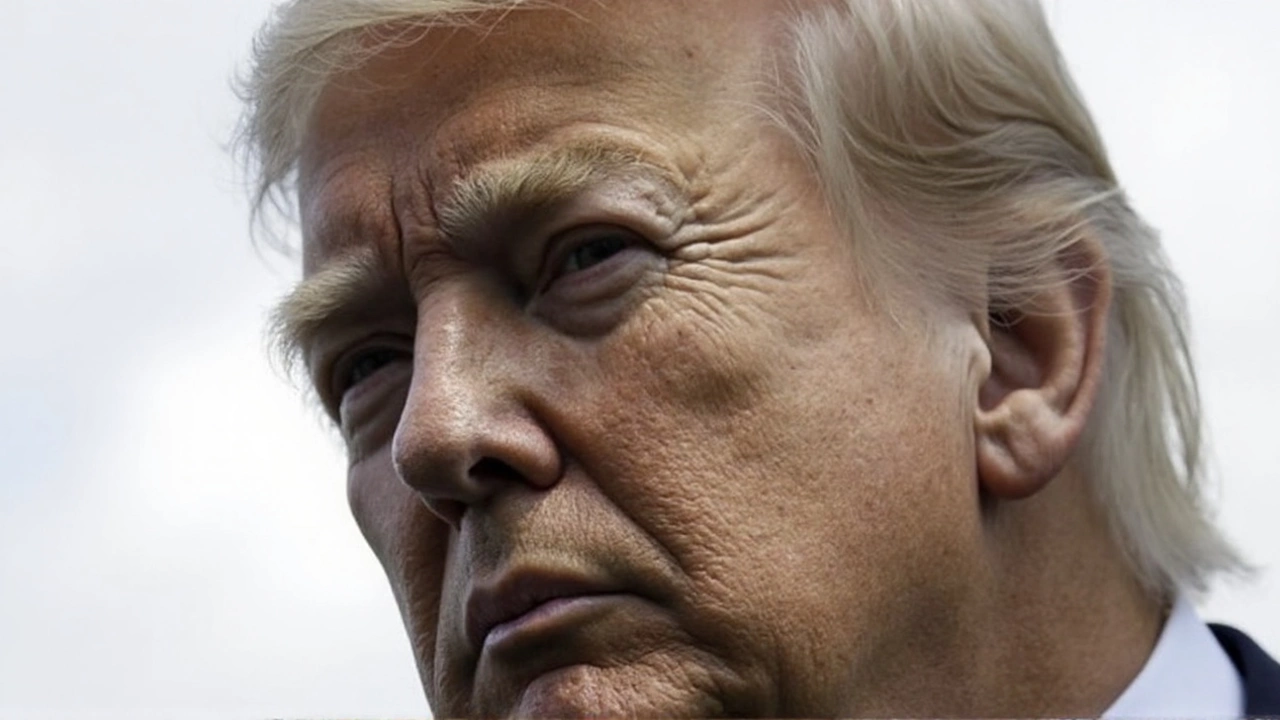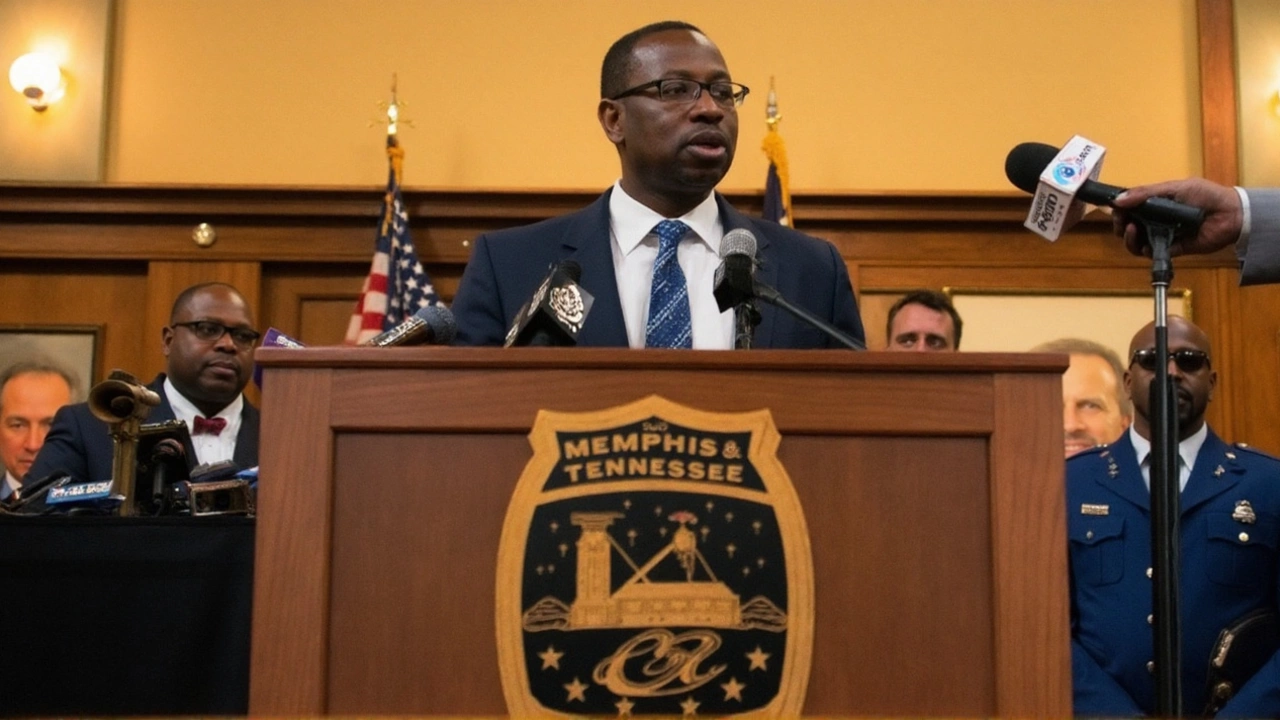Trump signals National Guard move to Memphis, drawing support and pushback
President Donald Trump says he wants to send the National Guard to Memphis, calling the city “deeply troubled” and promising to “fix that” using the same playbook he touted for Washington, D.C. He floated a wider federal response too — federal agents, and if needed, “the military, too,” plus “anybody else we need.”
On Fox & Friends, Trump claimed the plan has buy-in from both sides of the aisle: Memphis’s Democratic mayor, Paul Young, and Tennessee’s Republican governor, Bill Lee. “The mayor is happy,” Trump said. “And the governor… is happy.” Lee’s office later said he would speak with Trump to “work out the details,” thanking the president for offering resources and saying he looked forward to coordinating with local officials and police.
The mayor’s stance is less clear. Young has backed more resources to fight violent crime, but he hasn’t publicly endorsed deploying Guard troops specifically. A local official, reacting to the idea, called it “anti-democratic and anti-American,” underscoring how quickly the announcement split opinion inside the city.
This is all happening as Memphis tries to pull out of a grim stretch. The city hit a record for homicides in 2023. Police say overall crime has fallen in 2025, but the scars of recent years remain, and the debate over how to keep the momentum going is intense. Trump’s move thrusts Memphis into a national fight over where public safety ends and federal power begins.
Trump also made sweeping claims about his authority during the Fox interview, including that he could remove the mayor of Washington, D.C., “if I want,” and that he could “do whatever I want.” That’s not how federal power works. The D.C. mayor is elected by district voters, and the president does not have a unilateral power to oust local elected officials.

What the law allows, what a deployment might look like, and what comes next
There are a few legal pathways for Guard troops in a city like Memphis, and each one matters for what they can actually do on the street.
- Under state control (state active duty or Title 32 status): The governor commands the Guard. Posse Comitatus limits don’t apply, so Guard troops can support local law enforcement, including crowd control, traffic posts, perimeter security, and, in some cases, assisting with arrests under police direction. This route is the most common during emergencies and surges against violent crime.
- Under federal control (Title 10 status): Once federalized, Guard members are treated as federal troops, and the Posse Comitatus Act generally bars them from direct civilian law enforcement activities — like searches, seizures, or arrests — unless Congress has made a specific exception or the president invokes the Insurrection Act.
- Insurrection Act: This is the rarely used law that can allow the president to use the military domestically to restore public order when it’s beyond state capacity or state authorities are unwilling to act. It’s a serious step and would likely trigger court challenges and political blowback.
Trump’s comparison to his D.C. playbook needs context. Washington is unique: it’s a federal district, and its National Guard reports to the president through the Pentagon, not to a governor. That makes moving Guard forces there faster and simpler than in a state. In Tennessee, Governor Lee would be the central figure for any Guard presence tailored to local policing needs, unless the administration tried to federalize the Guard or invoke emergency powers.
There’s also the option of sending federal agents who already have clear law enforcement authority — think Justice Department task forces that target gangs, gun offenses, carjackings, and repeat violent offenders. The Trump administration used that strategy before in other cities, pairing federal prosecutors with ATF, FBI, and U.S. Marshals to go after specific crime patterns. Supporters say those operations produce quick arrests and longer federal sentences. Critics say they blur lines, fuel fears of overreach, and can strain community trust if not tightly scoped and transparent.
The Memphis question isn’t just “Will troops come?” It’s “What will they do if they come?” Here are the practical trade-offs city and state leaders are weighing:
- Mission clarity: Are Guard units securing perimeters around hot spots, guarding critical sites, or riding alongside police on targeted patrols? Vague missions tend to create friction.
- Command and control: Clear lines — who’s in charge, who approves tactics, who handles complaints — reduce the risk of missteps and legal exposure.
- Civil liberties: Visible military uniforms in neighborhoods can calm some residents and alarm others. Strict rules on stops, searches, and use of force are essential.
- Duration and exit plan: Short bursts can help during spikes. Open-ended deployments invite mission creep and public fatigue.
- Data and transparency: Regular, public reporting on arrests, seizures, and outcomes can show whether a surge is working or just moving problems around.
Memphis’s recent crime trend adds another wrinkle. After a record homicide year in 2023, police now report sizable declines in 2025. That makes the timing tricky. If the numbers are improving, the case for military support must rest on specific gaps — like staffing shortfalls, a surge in a particular type of violent crime, or a need to harden certain corridors — rather than broad assurances.
Legal voices are already warning about red lines. The Posse Comitatus Act restricts federal troops from acting as domestic police, with narrow exceptions. That’s why governors, not presidents, usually deploy Guard units for local law enforcement support. Federalization or use of the Insurrection Act would escalate the situation and almost certainly face court challenges. Even without soldiers, expansive federal law enforcement operations raise civil liberties concerns if they lead to warrantless stops, undisclosed surveillance, or heavy-handed tactics.
For Governor Lee, the choice is strategic and political. A state-led Guard deployment under a defined public safety plan gives Tennessee control, aligns with the law, and limits risks. It would also require close coordination with Mayor Young’s team to avoid mixed signals and keep community support. For the White House, sending more federal agents is faster and cleaner legally, but it doesn’t carry the same visual punch as troops, and it forces a focus on targeted investigations over street presence.
For Memphis residents, the day-to-day questions are practical: Will more uniforms on the street make neighborhoods safer at night? Will it slow down response times elsewhere? Will it affect schools, traffic, or community events? And if crime is already easing, will a surge build on that trend or derail community-led work that’s finally paying off?
What to watch next:
- Joint plan: Do the city, state, and federal government release a written plan with scope, timeline, and measures of success?
- Status of troops: If Guard troops come, are they under state or federal control? That single choice will shape everything they can and cannot do.
- Numbers and mission: How many personnel, which neighborhoods, what hours, and which specific tasks?
- Oversight: Are there clear complaint channels, body-camera rules for Guard partnering with police, and public reporting on outcomes?
- Crime data: Do violent crime and gun incidents continue to fall during and after any deployment?
Trump’s announcement fits his broader “tough on crime” brand and revives a hard debate from past years: how far should Washington go inside America’s cities? Memphis could become a test case for that question — not just in politics, but on the streets where any plan, good or bad, will be judged in real time.



